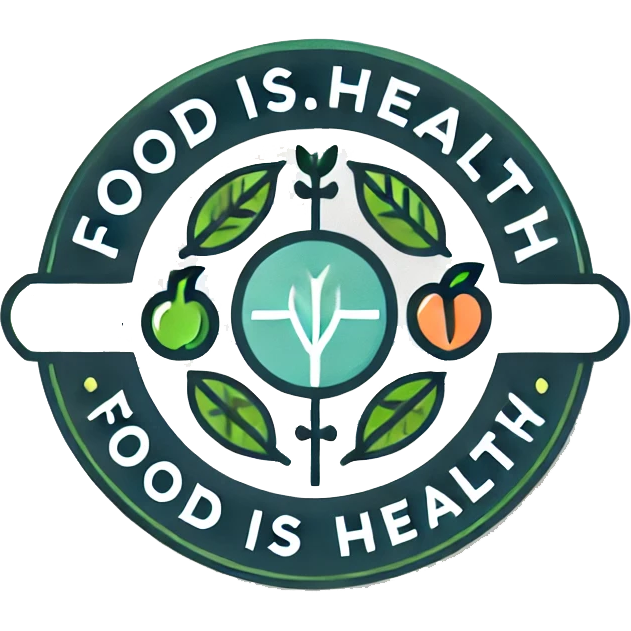Detox diets have become increasingly popular in recent years, promising to cleanse the body of toxins, boost energy levels, improve digestion, and help with weight loss. From juice cleanses to the Master Cleanse, there are countless detox diets out there. But do they really work? And more importantly, are they backed by scientific research? Let’s dive into some of the most popular detox diets, how they differ, and what the science says about their effectiveness.

What Are Detox Diets?
Before comparing different detox diets, it’s important to understand the basic idea behind them. Detox diets claim to help rid the body of toxins—harmful substances that can come from food, the environment, or the body’s own metabolic processes. These diets often involve eliminating certain foods or fasting for a period of time, followed by consuming specific drinks, supplements, or meals that are said to “flush out” these toxins. Proponents of detox diets believe this helps to reset your body and improve overall health.
However, it’s worth noting that the human body already has a natural detoxification system. Your liver, kidneys, lungs, and digestive system work together to filter and eliminate waste and toxins without the need for special diets.
Popular Detox Diets: Differences and Claims
Let’s look at some of the most popular detox diets and break down how they work.
1. Juice Cleanses
One of the most common forms of detoxing is the juice cleanse. This involves consuming only fruit and vegetable juices for several days, typically ranging from 3 to 7 days. The idea is that juices are rich in vitamins, minerals, and antioxidants, which help to detoxify the body while giving your digestive system a break from solid foods.
Claims: Juice cleanses promise to flush out toxins, improve skin, boost energy levels, and help with weight loss.
Differences: Juice cleanses differ in terms of ingredients and duration. Some focus on specific juices (like green juices made from leafy vegetables), while others include fruit-based juices, which can be higher in sugar.
Scientific Support: There is limited scientific evidence to support juice cleanses as an effective way to detoxify the body. While juices are nutrient-dense, they lack fiber, protein, and healthy fats, which are essential for a balanced diet. The weight loss associated with juice cleanses is often temporary and due to calorie restriction, not because of any detoxifying effect.
2. The Master Cleanse
The Master Cleanse is another well-known detox diet. This diet consists of consuming a mixture of water, lemon juice, maple syrup, and cayenne pepper for 10 days. No solid food is allowed, and participants are encouraged to drink a laxative tea to help eliminate waste from the body.
Claims: The Master Cleanse claims to detoxify the body, promote rapid weight loss, improve digestion, and increase energy levels.
Differences: Unlike juice cleanses, the Master Cleanse relies on a single drink rather than a variety of juices. It also includes a laxative component, which can have a harsh effect on digestion.
Scientific Support: The Master Cleanse lacks scientific support. While it may lead to quick weight loss, this is primarily due to calorie deprivation, not because of any toxin removal. Additionally, prolonged use of this diet can lead to nutrient deficiencies and dehydration. Experts warn that the Master Cleanse can be dangerous if followed for extended periods.
3. The 7-Day Detox Diet
The 7-Day Detox Diet typically involves eating whole, unprocessed foods like fruits, vegetables, nuts, seeds, and whole grains, while avoiding sugar, caffeine, alcohol, and processed foods. Some versions of this diet also recommend taking supplements or drinking detox teas to aid in the detoxification process.
Claims: This diet promises to rid the body of toxins, improve digestion, enhance mental clarity, and support weight loss.
Differences: Unlike juice cleanses and the Master Cleanse, the 7-Day Detox Diet allows for a wider variety of whole foods, making it more balanced and sustainable. However, it often still includes some form of restriction, whether it’s cutting out certain food groups or limiting calories.
Scientific Support: Eating whole, unprocessed foods is a healthy practice supported by science. However, the idea that this diet “detoxifies” the body in a way that your liver and kidneys cannot is not backed by scientific evidence. The improvements in health seen from this diet are likely due to better nutrition and cutting out harmful substances like sugar and alcohol, rather than any detoxification process.
4. Detox Teas
Detox teas are marketed as herbal blends that can help flush out toxins, improve digestion, and aid in weight loss. These teas often contain diuretic or laxative ingredients like senna, dandelion root, or green tea extract, which are said to promote the elimination of toxins through increased urination or bowel movements.
Claims: Detox teas claim to cleanse the body, reduce bloating, promote weight loss, and improve skin.
Differences: Detox teas vary depending on the type of herbs used. Some teas are more focused on digestion, while others emphasize weight loss.
Scientific Support: While certain herbal teas can have health benefits, detox teas that contain laxatives or diuretics can be harmful if used long-term. These ingredients can lead to dehydration, electrolyte imbalances, and dependence on laxatives for bowel movements. Moreover, there’s no scientific evidence that detox teas effectively remove toxins from the body.
What Does the Science Say About Detoxing?
While detox diets are popular, the scientific community is generally skeptical of their claims. Most doctors and dietitians agree that the body is naturally equipped to detoxify itself through the liver, kidneys, and digestive system. As long as you eat a balanced diet, drink plenty of water, and limit your exposure to harmful substances like processed foods and alcohol, your body will handle detoxification on its own.
In fact, some detox diets can do more harm than good. Fasting or severely restricting calories can slow down your metabolism and lead to nutrient deficiencies, fatigue, dizziness, and digestive problems. Diets that rely on laxatives or diuretics can cause dehydration and electrolyte imbalances, which can be dangerous.
Instead of following extreme detox diets, experts recommend focusing on a long-term healthy eating plan that includes plenty of fruits, vegetables, whole grains, lean proteins, and healthy fats. This type of balanced diet supports your body’s natural detoxification processes and provides the nutrients it needs to function optimally.
Are Any Detox Diets Backed by Science?
While the concept of detoxing itself is not widely supported by science, certain aspects of detox diets can be beneficial. For example:
- Eating more fruits and vegetables: Fruits and vegetables are rich in vitamins, minerals, antioxidants, and fiber, all of which are important for overall health.
- Drinking plenty of water: Staying hydrated supports kidney function, which helps your body eliminate waste.
- Limiting processed foods: Processed foods often contain harmful additives, sugar, and unhealthy fats. Reducing these foods can improve your health.
- Cutting back on alcohol: Excessive alcohol intake can strain your liver, so limiting alcohol is a good idea for supporting your body’s detoxification system.
Conclusion
While popular detox diets like juice cleanses, the Master Cleanse, and detox teas promise quick fixes and dramatic results, they are not supported by scientific evidence. In fact, some of these diets can be harmful in the long run. Instead of relying on extreme measures, focus on maintaining a healthy, balanced diet that supports your body’s natural detoxification processes. Eating more whole foods, staying hydrated, and cutting back on processed foods and alcohol are simple, science-backed strategies that will benefit your health in the long term.
By focusing on sustainable, healthy habits, you can give your body the support it needs—without the need for a trendy detox.
Make sure to check out more articles in our News & Views section. Feel free to reach out any time to collaborate with Food Is Health on projects which help people heal through natural food & nutrition.
Organic vs Conventional Food | Food Preservatives & Additives | Anti-Inflammatory Diets | Gut Health & Probiotics | Plant-Based Diets | Detox Diets & Cleanses | Food Allergies & Sensitivities Functional Foods | Sustainable Eating & Food Waste | Ag Related Topics | Popular Topics
